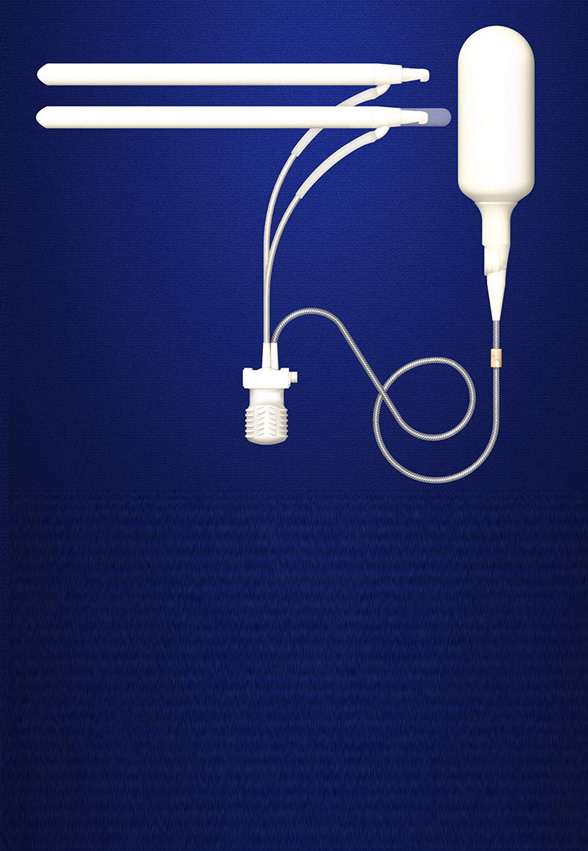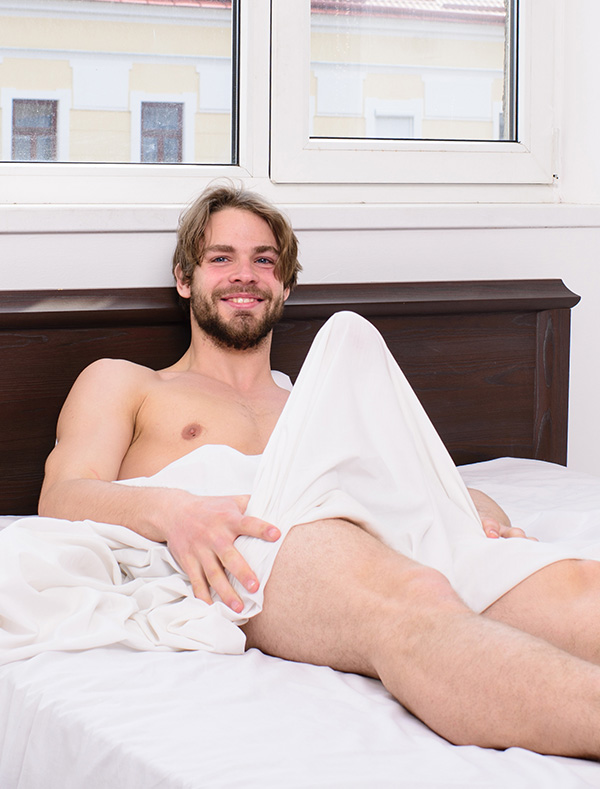

Waking up multiple times at night to urinate can disrupt your sleep and affect your health. Normally, the body produces less concentrated urine during sleep, allowing most people to rest undisturbed for six to eight hours. However, if you find yourself waking at least twice every night to urinate, you may be experiencing Nocturia which is a condition that can also indicate a more serious underlying medical issue.
People with Nocturia often get up in the middle of the night to relieve their bladder, a problem seen in both men and women and one that becomes more common with age. While a single nighttime urination may be normal, frequent episodes can signal the need for medical attention. It is important to distinguish Nocturia from conditions such as polyuria or increased daytime urination, as each requires a different diagnosis and treatment approach.
In recent years, many patients, including a growing number from African countries, travel to India for Nocturia treatment because of the country’s highly experienced urologists, advanced diagnostics, and affordable treatment costs compared to other countries. This page is a pateint's guide to availing nocturia treatment in India.
After the bladder has been filled with an acceptable amount of pee, a signal is given to the brain, informing it that the individual needs urinate soon. At this point, the bladder completely empties itself of urine. Urination occurs similarly to this. Some people's voiding is incomplete or insufficient, yet the brain nevertheless transmits a signal to urinate in such individuals. Every time the individual wakes up, they urinate a little pee.
Disrupted sleep and associative urination occur as a result of this. That is, the individual gets awakened and chooses to pee even if the desire is not strong and builds a routine around it. Many factors contribute to these disorders, including Bladder blockage is the most common cause of night urination. The reasons why the bladder doesn't fill before the brain sends a signal:
As mentioned earlier, one or more of the Nocturia may be present in a woman's body when she has more than one underlying reason. Additionally, Nocturia may be brought on by such conditions as being overweight, having menopause, having high blood calcium levels, or having kidney stones.
Is it typical to wake up twice or more a night to use the bathroom? Necrotic Nocturia is seen in this case. Sleeping for six to eight hours without using the restroom should be possible. It should come as no surprise that getting up many times throughout the night to use the restroom may harm the quality of your sleep as well as your overall quality of life.
Poor sleep may become a serious issue for many people over time. Most individuals can't perform at their best if they don't get a good night's sleep. As a result, we are more irritable and less productive throughout the workday. Nighttime urination might be an early warning indication that something is wrong with our bodies. In and of itself, it's not an illness.
Nocturia urination in young men is common, who often need to urinate at night. Consult your physician if you have frequent nighttime urination that is causing you distress or concern since it may indicate a more serious condition. For each patient, a doctor can assist in determining what the most probable reason is and what the most suitable Treatment is. Treating the underlying disease-producing Nocturia may minimize the number of midnight toilet breaks. Drugs or medication modifications, such as diuretics, are often used to treat Nocturia in patients.
It is possible to alleviate Nocturia by making certain lifestyle adjustments. The following alterations are intended to lower the amount of pee produced at night:
Your doctor may prescribe medications if preventative measures and lifestyle modifications fail to decrease the number of times you urinate at night. Having a strong need to urinate might be alleviated by taking a bladder relaxant. If OAB is the root of your Nocturia, your doctor will likely prescribe an anticholinergic type of medication.
In order to maintain a normal flow of urination, your doctor may prescribe a diuretic. The use of a diuretic may induce Nocturia. As long as the pill is taken before lunch, this may aid in the removal of extra fluid while you're awake. This should reduce the amount of urine you pee while you sleep.
Nocturia may have a neurological etiology. Bladder-contracting nerves may be causing you to have a sudden want to weep. Invasive or non-invasive procedures are available for this therapy. Your bladder is stimulated by a tiny device implanted near your tailbone and transmits controlled impulses. Besides that, it's also reversible and safe. For OAB and nocturia therapy, electrical stimulation seems to be effective.
A surgical surgery may be recommended for the Treatment of nocturia enuresis in adults if prevention and drugs have failed. The underlying reason determines the success percentage of the procedure. For example, men with an overly big prostate may benefit from surgery to reduce blockage and alleviate discomfort.
Nocturia enuresis treatment for women may be broken down into the following primary categories:
Many children pee the bed at night, and it is not uncommon for it to run in families. After the age of 5, there is a greater chance that your kid may have issues maintaining bladder control throughout the night. These issues might be caused by a delay in the child's physical growth, a sickness, or other factors. Staying wet all night, after a dry spell of six months, the child started wetting the bed again and wetting the bed between two and three times every week for at least three months.
Your kid's physician should be consulted if there are any indicators of OAB in your child. While seeing the doctor, they'll ask you about your child's symptoms and do an examination. If your kid is 7 or older, this is extremely important. This age usually establishes bladder control. Checking for constipation and collecting urine samples may also be part of your doctor's diagnostic process.
Voiding tests may also be required of your youngster. The flow rate or volume of urine may be measured, as can the amount of pee in the bladder after a person's urination. Occasionally, your doctor may order an ultrasound of the bladder to see if structural concerns might be to blame.
Most youngsters who experience nighttime wetting the bed does it independently. If you need medical attention, you and your doctor may examine your choices and determine which course of action is best for you.
Lifestyle adjustments, such as restricting fluid consumption in the evening and eliminating caffeine, may help if your youngster isn't humiliated or concerned by infrequent wet nights. Supplemental therapy may be an option if lifestyle modifications don't work or if your child is afraid of peeing the bed.
Medications may be used as a last option by your child's doctor to reduce bedwetting. Medications of a certain class:
Struggling with nocturia can disrupt a person's sleep, impact daily energy, and affect quality of life. Finding an experienced urologist will require you to find a surgeon who understands the underlying causes, such as bladder dysfunction, prostate issues, or metabolic conditions. India is home to many such specialists, offering comprehensive diagnoses, personalised care, and tailored treatment plans. Here are the top doctors for nocturia treatment in India:
Dr. Shafiq Ahmed is a top urologist in India specialising in the diagnosis and treatment of nocturia. With extensive experience and a focus on patient-centric care, he provides effective treatments to help improve sleep quality and overall urological well-being.

Dr. Sanjay Gogoi is regarded for his expertise in managing nocturia and other urological conditions through advanced medical and minimally invasive treatments. His comprehensive urological care and personalised urological treatment plans ensure optimal treatment results for every patient.

Dr. Gautam Banga is an expert urologist in nocturia management, offering precise diagnosis and effective treatment strategies. Internationally trained and accredited, he boasts high treatment success and patient satisfaction rates.

Dr. Rajesh Ahlawat is a leading urologist in India specialising in nocturia treatment. With around 40 years of experience, he focuses on restoring patients’ quality of life through accurate diagnosis, effective treatment methods, and patient-centric care.

The cost of treating nocturia in India varies depending on the severity, type of treatment, and hospital or clinic. More advanced care involving diagnostics, follow-ups, or specialised interventions can increase the cost, but for most patients, simple treatment remains relatively affordable in India.
| Treatment Name | Cost in India | Stay in India |
|---|---|---|
| Nocturia Treatment in India | $500 - $1,000 | 1 - 2 Days |
Many physicians and urologists advise their patients to limit their intake of alcohol and caffeine. These medications are diuretics, which may worsen symptoms, even if they do not cause the disease. People with Nocturia might also be advised by their doctors to reduce the number of liquids they consume in the evenings and before going to bed. Diuretics and foods high in liquids should also be avoided, as should items that cause thirst. Melon is a good example; Cucumber, Coke, and cranberry juice. Acidic foods like tomatoes, soup, spicy foods, Chocolate, and sweeteners are made synthetically.
The practice of keeping a food journal is beneficial to a wide range of individuals. Keeping track of what one eats each day may aid in identifying a relationship between symptoms and foods causing the issue.


Suffering from Erectile Dysfunction
Open up and get treated
Semi Rigid and Inflatable Penile Implants
Get back the Erection
Insecure about your size
Get Penile Augmentation